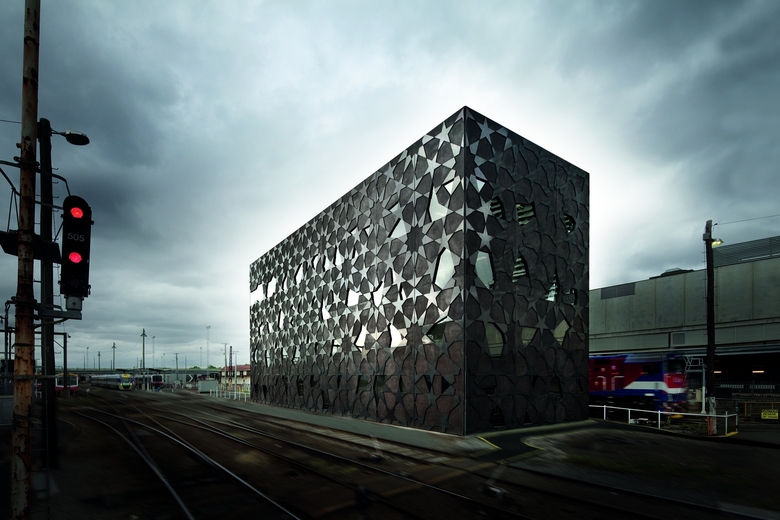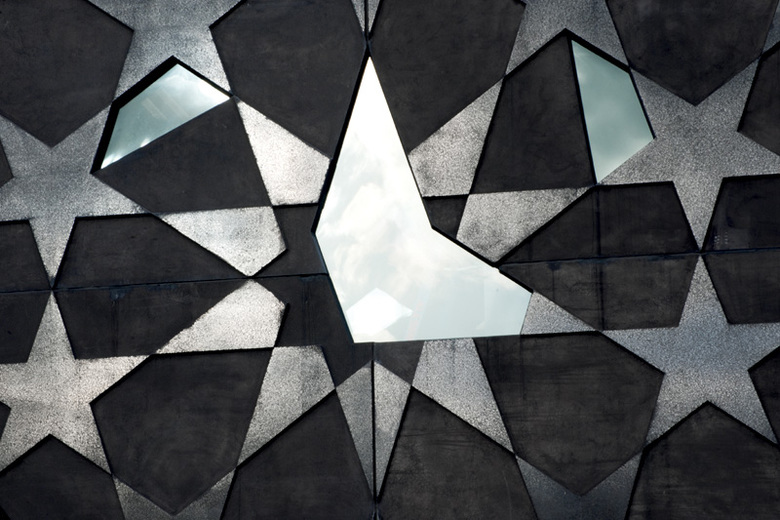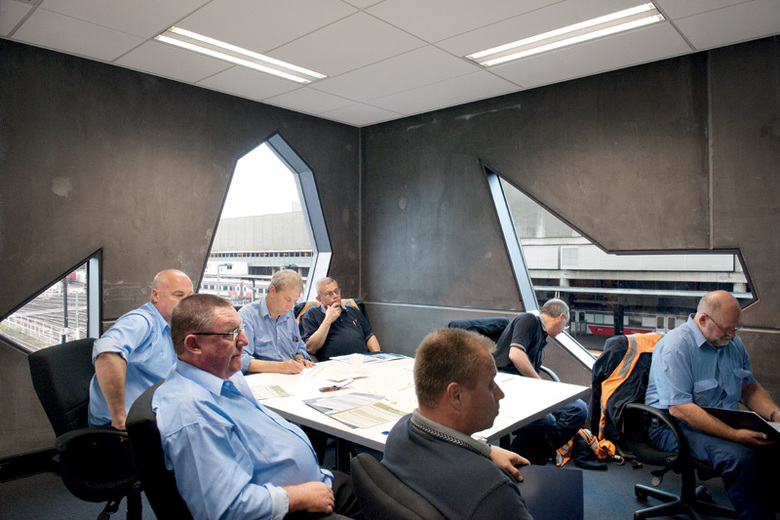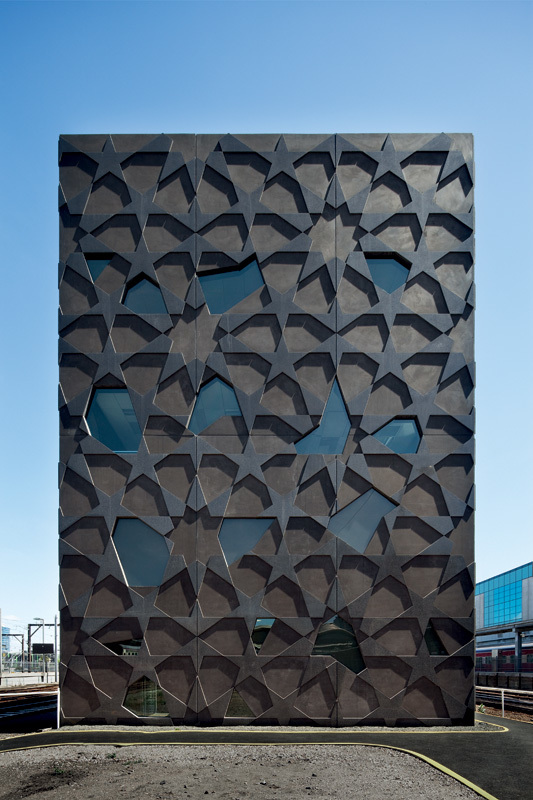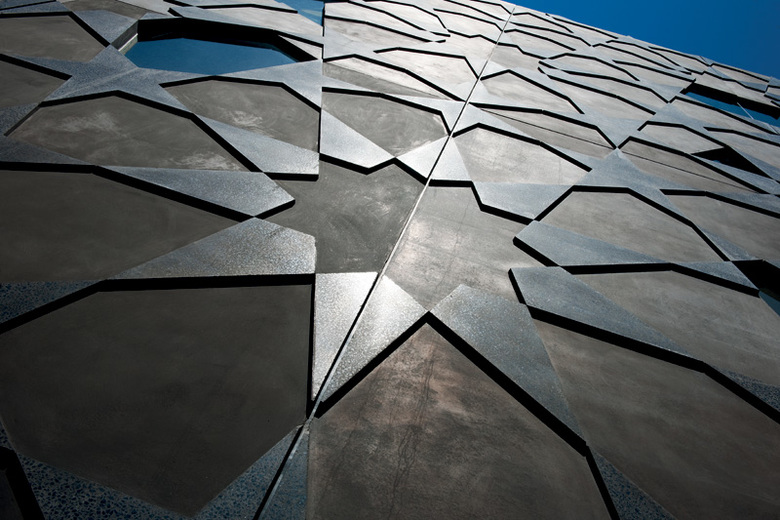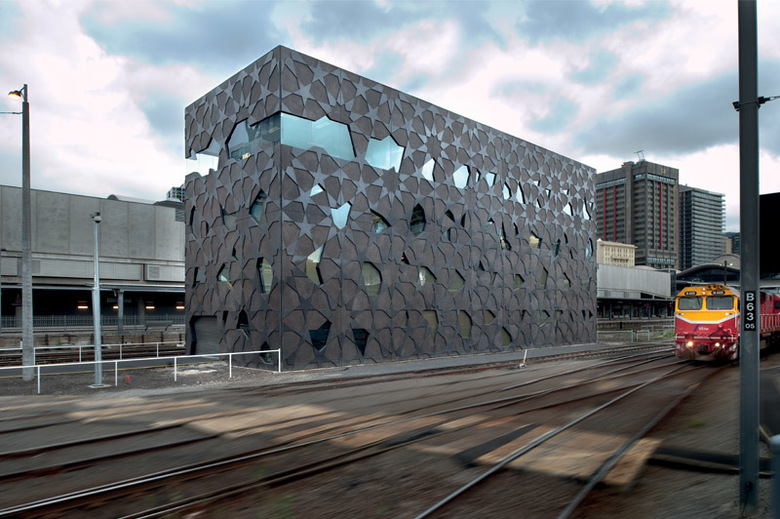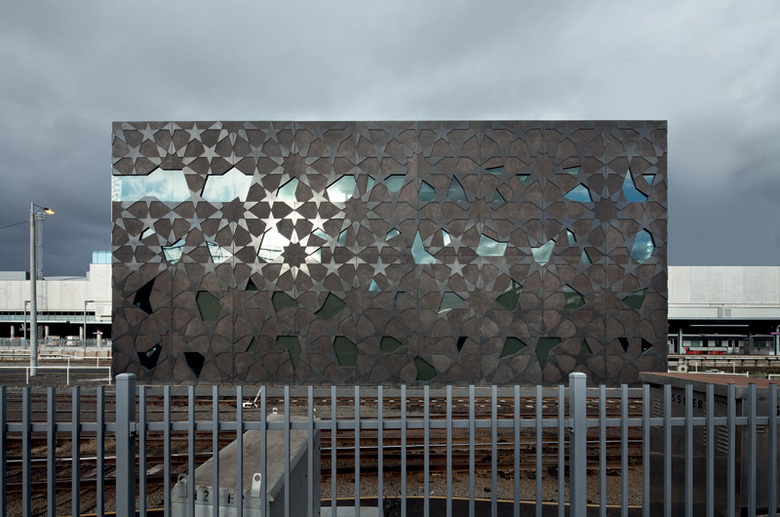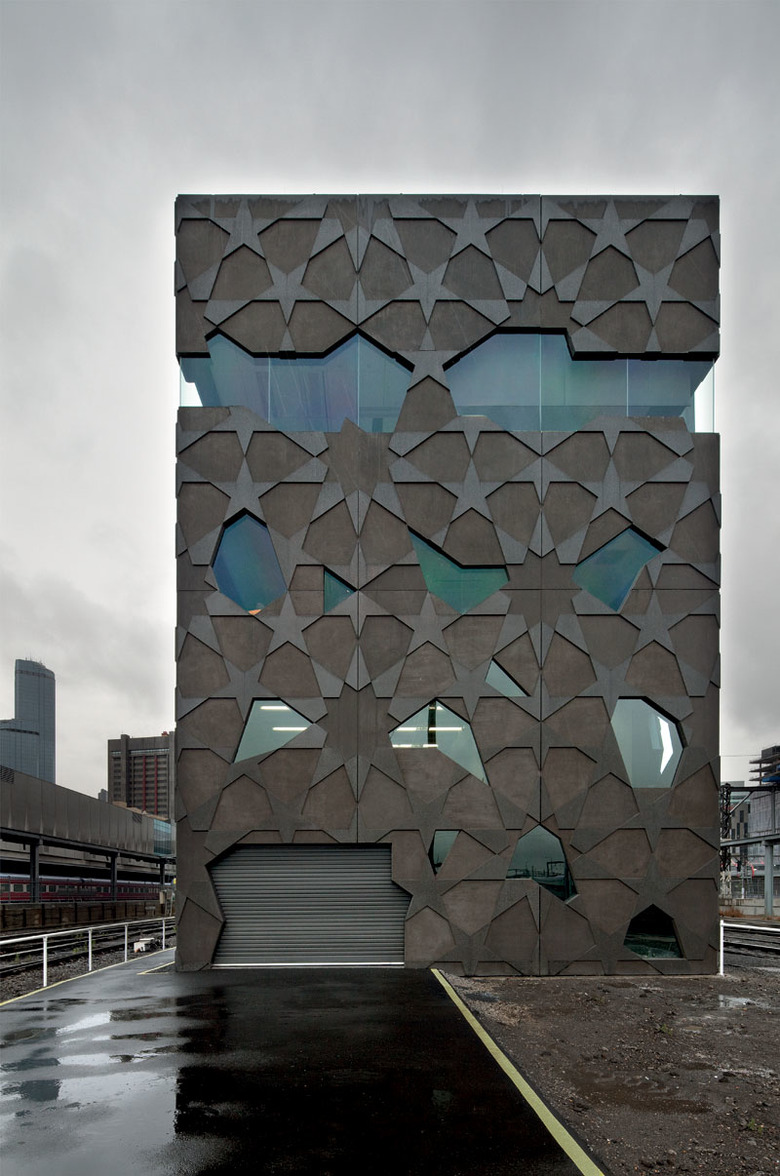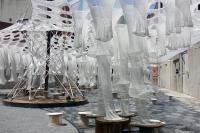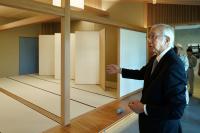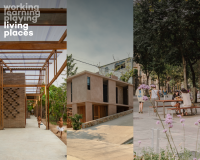Yardmasters Building
Victoria, Australia
Within the gritty rail yard environment, squeezed between a space formed by the divergence of V-Line tracks at the end of platforms 5 and 6, the Yardmasters Building is a multi-use facility for the various workers and operations associated with the Southern Cross Rail Yard. A service building that in years passed may have been treated in a pragmatic and unremarkable way.
Although inaccessible to the public, the extreme exposure of the building renders it highly visible from a number of vantages. Its inaccessibility, the no-mans land of the rail yard environment, became an opportunity: what was proposed was a jewellery box of exquisite proportions, its mystery amplified by its contrast to the grit that surrounds it. In providing delight to the rail experience, it says that public infrastructure matters and, by extension, that the public matter. The delicate polished patterning belies a robust and sophisticated façade that drastically minimizes energy consumption and takes sustainability seriously without the clip-ons.
The complexity and cost of constructing within a rail environment is significant. The strategy was to minimize on site construction, rail disruption and therefore cost. This involved providing as much architectural value off-site as possible. A double skin pre-caste concrete system was used. Within the outer ‘biscuit face’ a pattern was caste, the relief polished. The panel system required multiple processes not attempted before. They provided enormous value in terms of the buildings aesthetic and thermal performance. Exposed internal mass, insulated from the outside environment is supplemented by a chilled beam A/C system. Windows are sealed from free airborne particles and the fumes of the rail environment.
The project required consultation with representatives of the diverse users, their respective union representatives, management and relevant and associated authorities. The complexity of the stakeholder group and their multiple interests required a strategy of developing a simple flexible shell. The progress of the building, its public interface would then not be held hostage to the inevitable machinations of a complex stakeholders mix.
The internal layouts are simple and partitioned. Inevitable this will change as it did many times throughout the design process. Internally the building is robust and matter of fact, measured without appearing frugal. For us each room was to have at least one beautiful and exotic window.
The building was carefully cost managed. Panel sizes geared towards optimizing production and minimizing energy. Materials were chosen for their robustness – maintenance in this environment comes at too high a price. The patina was to match the rusted charcoal of its environment, as if it had always been there or simply emerged from the ground. This building is moody, and with the Melbourne weather it changes rapidly. So no matter how bad the day was, the last minute burst of late afternoon sun reminds us that it was truly worth it.
